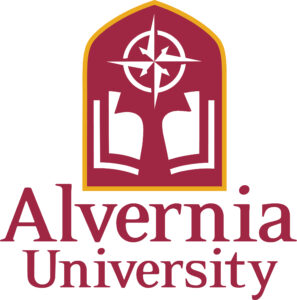Sharpen Your Program Focus with Regional Data
Uncover Hidden Insights to Drive Enrollment and Success

This webinar dives deep into the power of regional data for academic program evaluation and management.
Prioritize programs: Go beyond national trends and identify the programs with the most potential in your specific geographic area.
Make data-informed decisions: Gain a clearer picture of program lifecycles using regional enrollment patterns, competition landscape, and job market data.
Optimize program offerings: Tailor your programs to meet the unique needs and interests of students in your region, maximizing relevance and enrollment success.
Join us and discover:
- The critical advantages of using regional data for program evaluation.
- How to leverage regional data to prioritize programs for growth.
- Real-world strategies for optimizing program offerings based on regional insights.
- Best practices for integrating regional data into your program lifecycle management.
Don’t miss this opportunity to gain a competitive edge and ensure your academic programs remain relevant and thriving in your region!
June 12, 2-3 pm ET


Kahanov has over 25 years of higher education experience as a provost, dean and professor. She has extensive experience in academic affairs, institutional strategic planning, accreditation, developing academic programs, revising general education essential learning outcomes and creating faculty mentorship programs. Kahanov has served as Provost and Senior Vice President for Academic Affairs and the Chief Academic Officer for Alvernia University. Prior to Alvernia, Kahanov served as the Provost and Vice President for Academic Affairs at Stockton University and SUNY Oneonta.
Prior to her time at Oneonta, she served as Dean of the College of Health Sciences and Education at Misericordia University, Assistant Dean for Interprofessional Education and Practice at Indiana State University, and Chair of the Department of Applied Medicine and Rehabilitation at Indiana State University. Professionally she has served as an Athletic Trainer for several institutions and the Olympic Games. In addition to these roles, she has held faculty appointments at each institution mentioned.
Her academic credentials include 92 peer-reviewed publications, 120 peer-reviewed presentations and a textbook entitled “Athletic Training and Therapy: Foundations of Behavior and Practice.” She earned her bachelor’s degree in exercise science and athletic training from Indiana University; her Master of Science in Exercise and Sports Sciences from the University of Arizona; and her Doctorate in Education, Curriculum and Instruction from the University of San Francisco. She also completed the Institute for Management and Leadership in Education at Harvard University.
Sign Up to Gain Free Access to Gray DI's 2024 Regional Insights Webinar
- June 12, 2024
- 2 PM - 3 PM ET
- Webinar
Reads to Get You Ready

Career Companion (CoCo): Your AI Partner for a Perfect First Resume
Crafting a first resume often feels overwhelming, but Career Companion (CoCo) changes the experience entirely. By turning a few ideas and a transcript into a polished, professionally designed resume, CoCo removes the stress of wording, formatting, and layout. The result is a clearer, faster, confidence-building path for students who need to showcase their strengths and take the next step toward landing an interview.

The Urgency of Tomorrow: Launch the College Programs of 2026
As new technologies and industries accelerate, the institutions that act early on emerging program opportunities gain a decisive competitive edge. Explore the trends, market shifts, and innovation signals that point to the next high-value fields and why getting ahead now matters more than ever.

Easy to Use, Eager for More: Key Takeaways from Our CoCo Pilot
Early results from Gray DI’s Communication Companion pilot hint at the promise of AI-enabled speech coaching, revealing strong ease-of-use feedback and early traction among student users. Discover what students noticed, where opportunity emerges, and how this pilot is shaping the next evolution of AI-powered communication learning.

Why Your AI Tutor Might Be Widening the Achievement Gap
AI tutoring tools promise personalization and better outcomes, yet emerging evidence reveals a hidden risk that could quietly widen learning gaps. A small group of motivated students gains the most, while many others see little benefit and may lose opportunities for deeper cognitive growth. Discover how well-intentioned AI use can backfire and what strategies truly ensure that AI supports equity, independence, and lasting student success.

Undergraduate Growth vs. Graduate Collapse
International enrollment is changing in ways that few expected, with undergraduate interest staying strong while graduate demand slips faster than anticipated. Early signals show sharp drops in global engagement and surprising shifts in program preferences. Explore what is driving this turn and how it may shape institutional priorities in the year ahead.

Gray DI’s 2025 Holiday Gift Guide: Give the Gift of Data-Informed Decisions!
Get ready to rethink holiday gifting with a look at how data-informed tools can offer far more value than another mug or fruit basket. This guide showcases how Gray DI’s Program Evaluation System and AI College Companions bring clarity, better decisions, and meaningful improvements across campus, revealing how modern insights can shape a more confident and strategic year ahead.
Have questions or just want to connect? Reach out to info@www.graydi.us/
